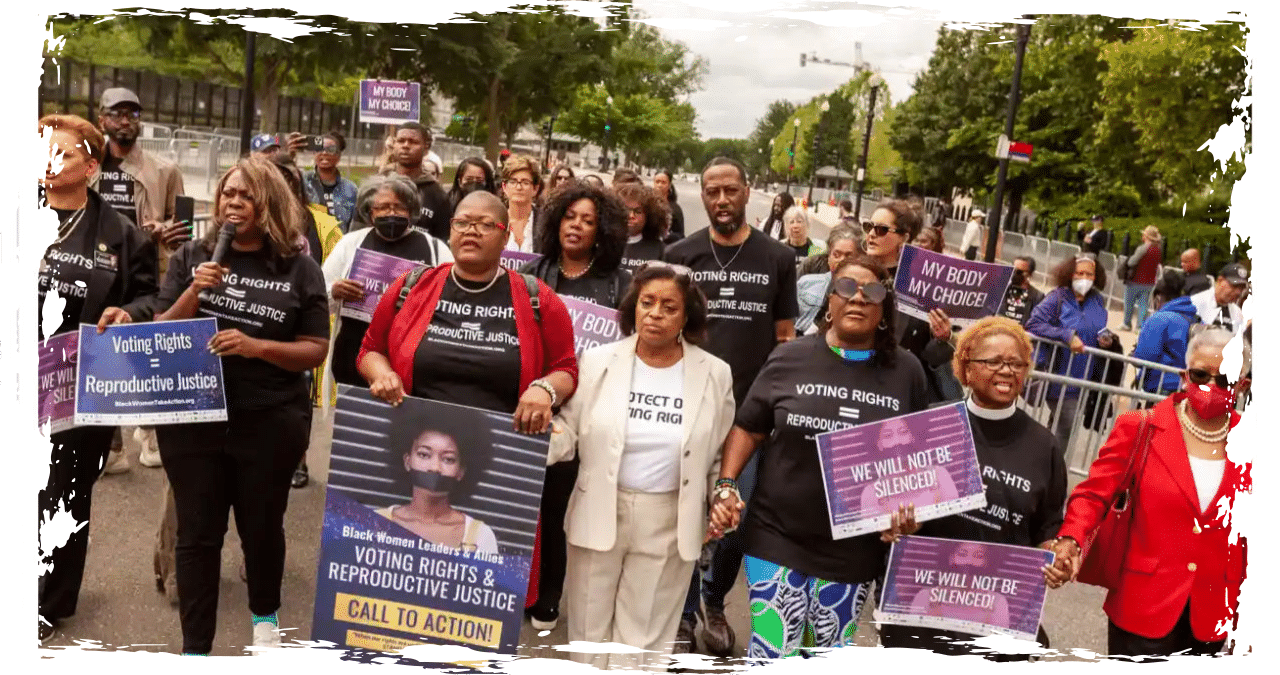More than 7 million Black women of reproductive age in America live in states where access to abortions is limited, according to a study released by The National Partnership for Women & Families (NPWF) and In Our Own Voice: National Black Women’s Reproductive Justice Agenda. This means that more than half of Black women in this demographic are unable to easily access abortion services.
Approximately 57% of Black women in the United States, aged 15 to 49, live in states where abortion bans or restrictions pose a threat to abortion access. These bans and threats have been on the rise in the past two years following the Supreme Court’s decision to overturn the landmark case of Roe v. Wade.
Geographic disparities exist in terms of access to reproductive healthcare. It is worth noting that around 43% of Black women who are affected by these policies and have the ability to reproduce reside in three states: Florida, Georgia, and Texas. These states have some of the strictest abortion laws in the United States.
According to the study, there is a correlation between states with abortion restrictions and higher rates of maternal mortality. It is worth noting that this issue disproportionately affects Black women. The data reveals that out of the 26 states that have limited abortion access, 17 of them also have above-average maternal mortality rates.
According to NBC News, the findings also revealed a concerning statistic – approximately 2.7 million Black women of reproductive age residing in these states are already facing economic insecurity. Furthermore, out of this group, 1.4 million Black women work in service jobs, which are less likely to offer benefits such as paid sick days and flexible scheduling. This includes Black women with disabilities, multiracial Black women, veterans, and immigrants.
According to the report, an increasing number of Black women are facing difficult choices and grappling with concerns about their safety and well-being. They find themselves pondering questions such as, “Will I survive childbirth if I decide to become pregnant?” “Could I potentially face arrest if I miscarry or require an abortion?” or even, “Is it better for me to forgo the idea of having children altogether?” These dilemmas highlight the unique challenges and uncertainties that Black women encounter in relation to reproductive health.
According to Jocelyn Frye, the President of NPWF, their concerns extend beyond just abortion bans. They also focus on issues such as economic opportunity, cost of living, and racial justice, as these factors are closely linked to the impact of abortion bans.
Tracy King, the Director of Outreach Communications for the Democratic National Committee (DNC), issued a statement in response to the report. King expressed concern over the continuous assault on reproductive health care by Trump’s MAGA supporters across the country. These attacks include the implementation of extreme abortion bans and the exacerbation of the existing disparities and hardships faced by Black women. King emphasized that these actions are just the beginning and there is a need to remain vigilant.
According to recent polls, it has been found that 28% of Black women who are eligible to vote consider abortion as the most crucial issue in the upcoming presidential election.



